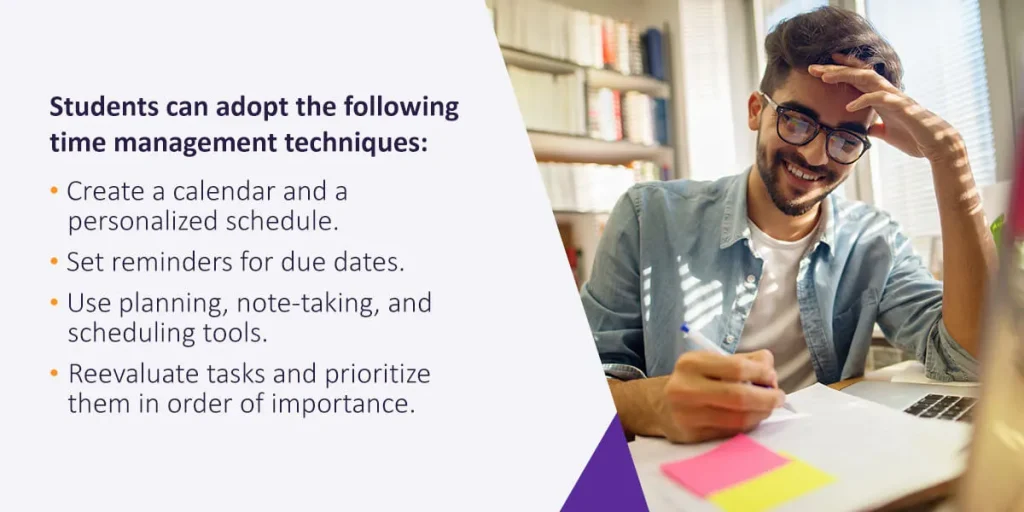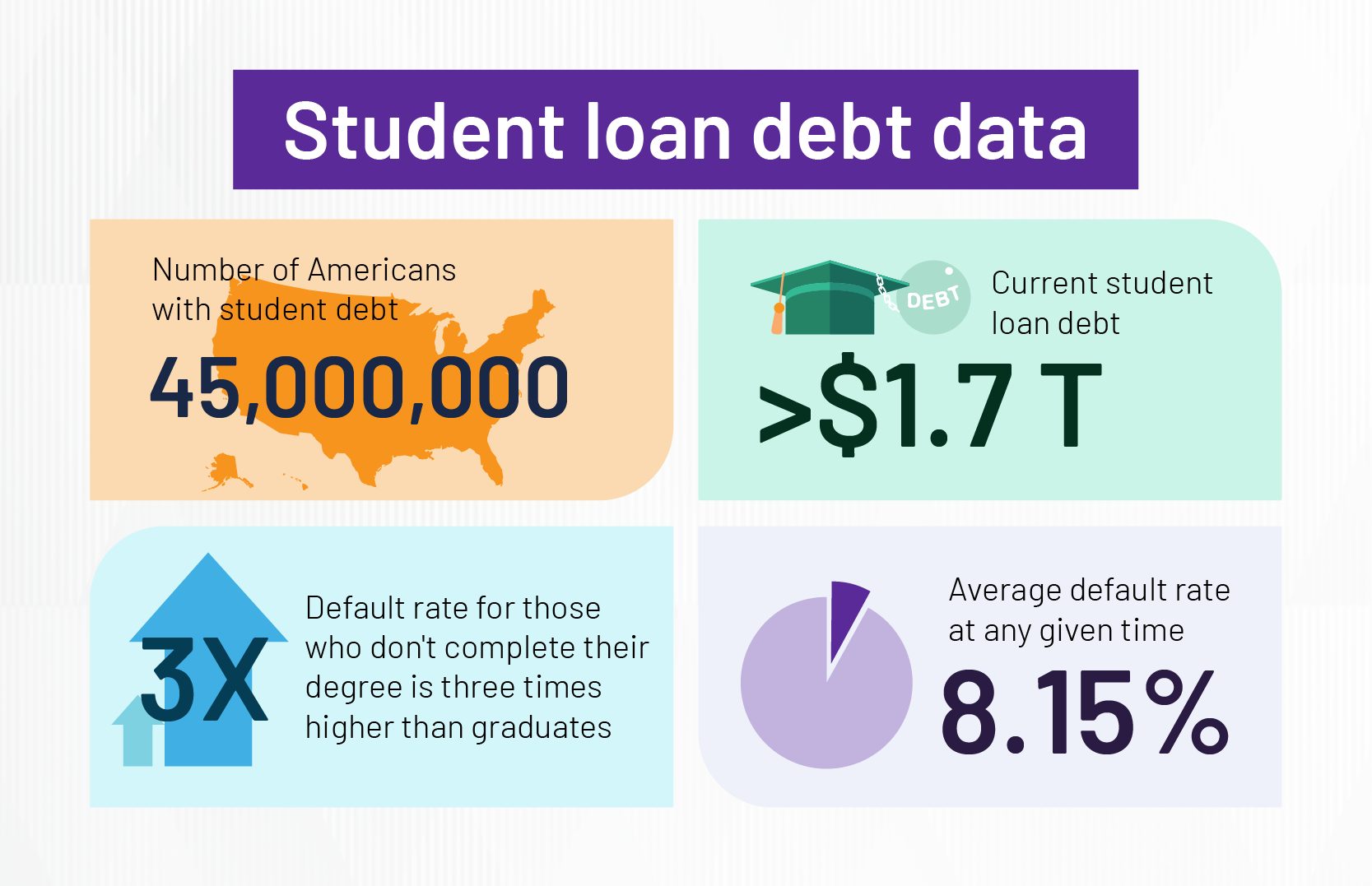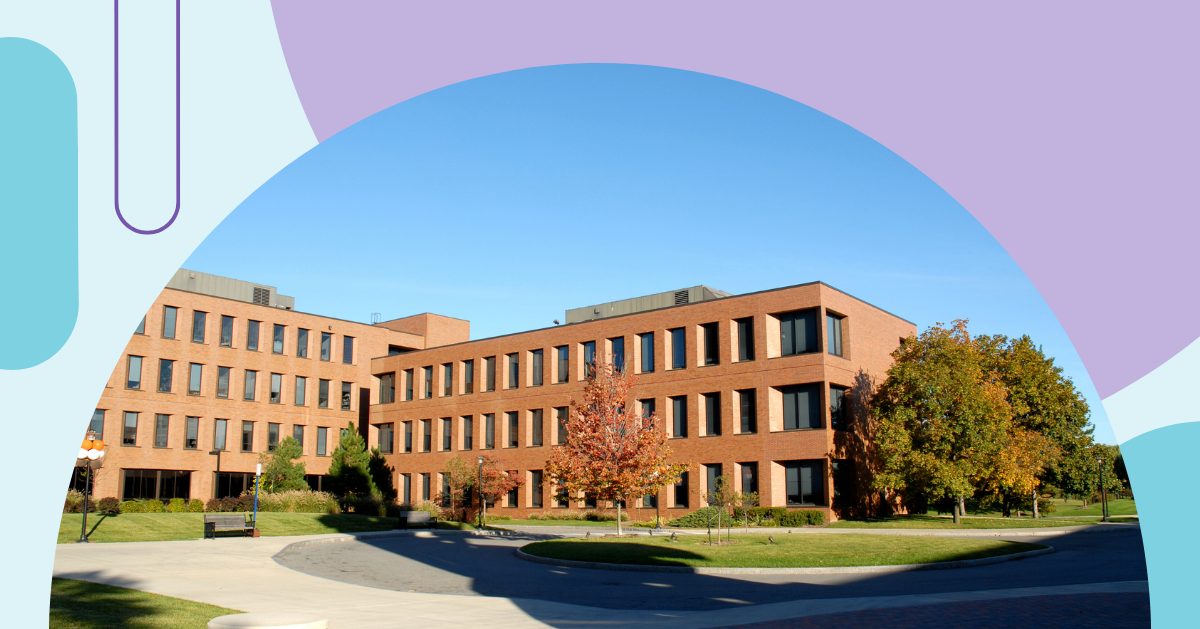
Students prepared for college often have specific skills that make them more likely to succeed in the workplace and life. Typically, those who do best at a four-year university, community college, online, or on-campus environments share five common characteristics — maturity, adaptability, general academic preparedness, study skills, and time management and organization. Let’s look more closely at these qualities.
How To Be a Prepared College Student
Student preparation for college is essential. From improving maturity to working on good time management skills, college often requires an independent mindset and ability for growth. Here are five preparedness traits to keep in mind.
1. Maturity
Students may only succeed when they understand the responsibility of higher education. Once they enter college, the burden of learning and growing rests on their shoulders alone. Without good decision-making skills, students may flounder in a setting where no one reminds them about schedules, classes, or assignment due dates.
While many universities assign faculty advisers to help students assess their progress, there is no longer an authority figure looking over students’ shoulders to ensure they stay on track, and nobody will punish them or send them to detention if they make a mistake. Maturity means students have the knowledge and responsibility to prioritize education over skipping class or attending Thursday’s party. It also gives students the confidence to feel comfortable talking to professors, deans, or staff who know the answers to vital questions.
Part of maturity is the ability to take good care of themselves. For many students, college is the first taste of independence. They must perform daily tasks such as cooking, cleaning, laundry, budgeting, etc. Prepared students can also make wise decisions, which means staying safe and advocating for their well-being. Students need safety skills to help them avoid risk.
2. Adaptability
For most students, the transition from high school to college is a simultaneously thrilling and daunting milestone.
Students may feel like strangers during their first semesters at college, but often, the first year is when students experience the most growth. That’s why the students who are the most prepared for this brave new world are those who can adapt quickly to novel environments. Resilient students may easily make new friends, ask better questions in class, or quickly recognize what information they have yet to understand.
For example, most students can discern how well or poorly their high schools prepared them for the rigor of college-level academics within the first few weeks of classes. The most successful students use this information to fill their knowledge or ability gaps in knowledge or ability. For example, they may seek tutoring or extra support after realizing they are behind the curve in core subjects.
3. General Academic Preparedness
While you might assume all high schools’ college preparation programs provide a solid foundation for the college experience, that is not always the case. Some high schools offer more rigorous courses than others, and college classmates might enter their first year with vastly different skill levels and preparedness.
Even those with the same GPAs and standardized test scores might reflect different levels of academic preparedness. However, students who come to campus underprepared can close that gap if they learn or display some or all the other attributes common among successful students.
4. Time Management
Time management is one of a college student’s most essential skills. Some students come to campus straight from college preparatory programs that emphasize student initiative and independence. These students may have a great deal of experience managing their time and completing writing-intensive or long-term projects with little day-by-day guidance.
However, many students lack these backgrounds, and even those with plenty of practice may still need to become apprentices and masters of time management.
Most first-year college students must learn how to manage their abundant free time. Projects with longer due dates often lead to procrastination. Also, students who haven’t correctly estimated the amount of work they have to do for an assignment may give themselves far less time than they need to complete it.
Many students work part- or full-time jobs to cover tuition fees and living expenses. Almost two-thirds of students enrolled in a two-year college program spend more than half of their time in college working 20 or more hours a week. Some students also have families and must juggle home life with their studies. These factors may lead to burnout. Students can adopt the following time management techniques to balance studying, making friends, and relaxing:
- Create a calendar and a personalized schedule.
- Set reminders for due dates.
- Use planning, note-taking, and scheduling tools.
- Reevaluate tasks and prioritize them in order of importance.

5. Organization and Study Skills
It may seem like a no-brainer, but the students who come to college most prepared are usually the most organized. Organized may differ from neat, but both qualities include concrete, effective systems.
Organized students generally keep materials for a given class in the same place, have separate folders on their computers for different projects or courses, and work and study in a controlled fashion. For a paper, they keep checklists and a running knowledge of what they must do first, second, and third. Organized students also find out what environments and times of day are best for them and plan their studying accordingly.
Students with study skills know how to apply themselves to their coursework. The critical study skills students need to master in college include:
- Creating a study routine: Prepared students develop a routine that helps them get into an ideal frame of mind. This routine can be as simple as choosing a time or location that’s conducive to learning. For instance, some students may meditate or do yoga stretches to help them relax before a study session.
- Note-taking: Knowing how to take notes — whether typing on a laptop or using pen and paper — is a crucial skill. Prepared students capture relevant information from their lectures.
- Time management: Students must know how to manage their schedules. They may have to make some sacrifices to balance classes, social life, work, and studying.
- Organization: By staying organized, students stay on top of what assignments are due and when. A calendar or agenda can help them study and prepare for assignments and tests.
- Memorization: Memorizing large amounts of information enables students to learn substantive topics. Whether they use flashcards or create mnemonics or outlines, prepared students know which method works best for them.
Characteristics of a Prepared College Student
While prepared college students do not necessarily display all five characteristics described above, developing several skills can be helpful. Many students lack maturity in specific areas, but can still study proficiently. Other students are adaptable in some ways but not in others, and yet they are academically ready for college-level work with the right organizational and time-management tools.
Success coaches have the necessary strategies to help students prepare. The more students learn to master these skills, the better positioned they will be for success in college and life. Acquiring these skills will help students achieve the goals they set out when they enroll. Student preparation is essential because it:
- Improves the chances of students completing their degrees.
- Informs students about how they will perform and handle college before they start.
- Helps reduce income and ethnic gaps in degree completion.
Prepare Students for College With Help From Watermark
Student college preparation is essential for success. College readiness encompasses all aspects of academic preparedness and includes organization and study skills. Prepared students also have the life skills and maturity to navigate the freedom and responsibilities they have in college. Students must understand their strengths and weaknesses and take the initiative to develop themselves and prepare for college.
Watermark has provided higher education institutions with data collection, measurement services, and reliable analysis software. For community colleges, universities, and higher learning organizations, our services help institutions identify and engage with students who need support. Only some students are fully ready for college, but our student success solutions can help you implement intervention strategies and set students up for success. Contact us today to speak to a representative or request a demonstration online if you want to help more students prepare for college life.















































































































































































































































































































































































































